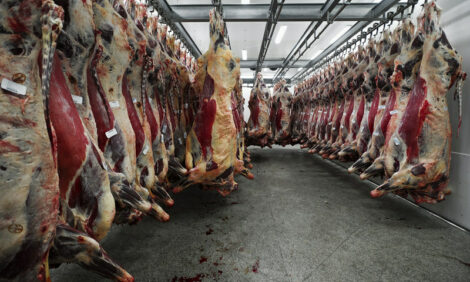



New Zealand Invests in Premium Beef Development
NEW ZEALAND - The New Zealand government announced last week it will be supporting a programme to produce high-quality marbled beef off grass, by combining specific high-marbling genetics with the country’s strengths in pastoral agriculture, according to Joe Burke from the Meat Division of Bord Bia-Irish Food Board.The investment partnership is expected to be worth $23.7 million over seven years, with the Ministry for Primary Industries providing NZ$11 million (€ 7.15 million) and the balance coming from commercial companies, Brownrigg Agriculture and Firstlight Foods.
Marbling, the distribution of intramuscular fat through meat, is an important quality attribute in beef for markets such as Japan, China and the United States.
Also ‘foodies’ in other countries are increasingly seeking marbled beef on account of flavour, juiciness or tenderness preferences. Throughout the world marbled beef is mainly produced in feedlots using intensive cereal-based diets.
By contrast, grass-fed cattle mainly lay down intermuscular fat, between the muscle seams, rather than being dispersed within it.
This project will involve crossing purebred Wagyu sires with New Zealand dairy cows and some Angus beef cows in a bid to put New Zealand marbled beef 'centre of the plate' in key international markets.
The NZ approach will be to finish these cattle on grass, while retaining a high proportion of the marbling expressed in the Japanese-style grain feeding systems.
USDA Prime grade is the most widely recognised standard for beef marbling internationally. Less than three per cent of the entire US beef production reaches USDA Prime.
Gerard Hickey, Managing Director of Firstlight Foods, believes that using a Wagyu dairy crossbred, NZ farmers will be the first in the world to consistently produce marbled beef off grass to USDA Prime standard.
Dairy calves are an underutilised resource in NZ. A large proportion of male dairy calves are sent directly for slaughter as ‘bobby veal’, and there is growing animal welfare scrutiny over the practice.
Dairy farmers involved in this project have the option of grass-finishing the Wagyu-cross calves themselves, or trading them to backgrounders and finishers involved in the initiative.



